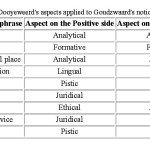Jim Russell – The Poor Should Move To Cities With High Housing Prices
No comments yetsustainablecitiescollective.com. We don’t flee troubled places so much as we seek opportunity. The story of migration is one of pull, not push. The story of brain drain is one of push, not pull. Policies designed to retain talent misunderstand why people move:
At first glance, it might be imagined that the people most likely to migrate would be the poorest. However, the poorest people cannot afford it. Africa’s Sahel, the world’s poorest region, has not had emigration rates commensurate with its extreme poverty. Finance constraints give rise to an apparent paradox: An increase in income in the country of origin can actually increase emigration from it.
If a migrant’s family is financing the costs, and benefiting through subsequent remittances, it is possible that the decision to migrate is not truly a decision of the migrant but of the migrant’s family. Many studies support this depiction. In effect, rather than people choosing to change their country, families are choosing to become transnational. Families in poor countries are the mirror image of companies in rich ones. While the multinational companies are predominantly anchored in high-income countries, the multinational families are predominantly anchored in low-income ones.
Read more: http://sustainablecitiescollective.com/jim-russell/
You May Also Like
Comments
Leave a Reply






